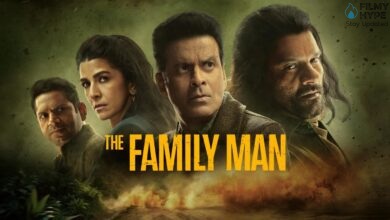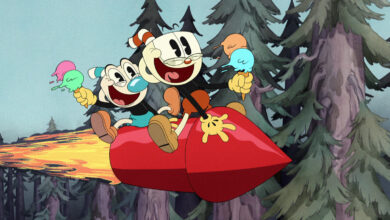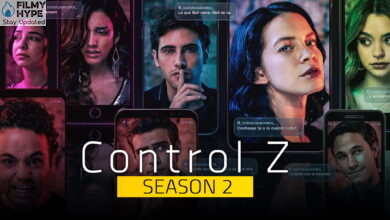Vikings: Valhalla Review: A Worthy Spin-Off and A Little Storytelling Jewel That’s Hint Season 2
Vikings: Valhalla is an interesting restart, which finds its dimension both by remaining in close continuity with the parent series and by seeking - and largely succeeding - to explore new paths
Starring: Sam Corlett, Leo Suter, Frida Gustavsson
Director: Niels Arden Oplev
Streaming Platform: Netflix (click to watch)
Filmyhype.com Ratings: 4/5 (four star)
Here is Vikings: Valhalla Review the new Netflix series, a spin-off of the famous Vikings series. Vikings: Valhalla, written and produced by Jeb Stuart and Michael Hirst, also producer of the previous series, will make you keep your eyes glued to the screen thanks to the multiple battles and situations of tension and suspense. The series will be available starting February 25, 2022 on Netflix. Almost a year after the conclusion of the acclaimed TV series Vikings with Season 6 and 89 episodes in total, let’s go back to talking about Norse mythology and Viking clashes: if you are among the fans of the adventures of Ragnar Lothbrok , Lagertha and all the other historians characters from the series you will surely be eagerly awaiting the spin-off TV series Vikings: Valhalla.
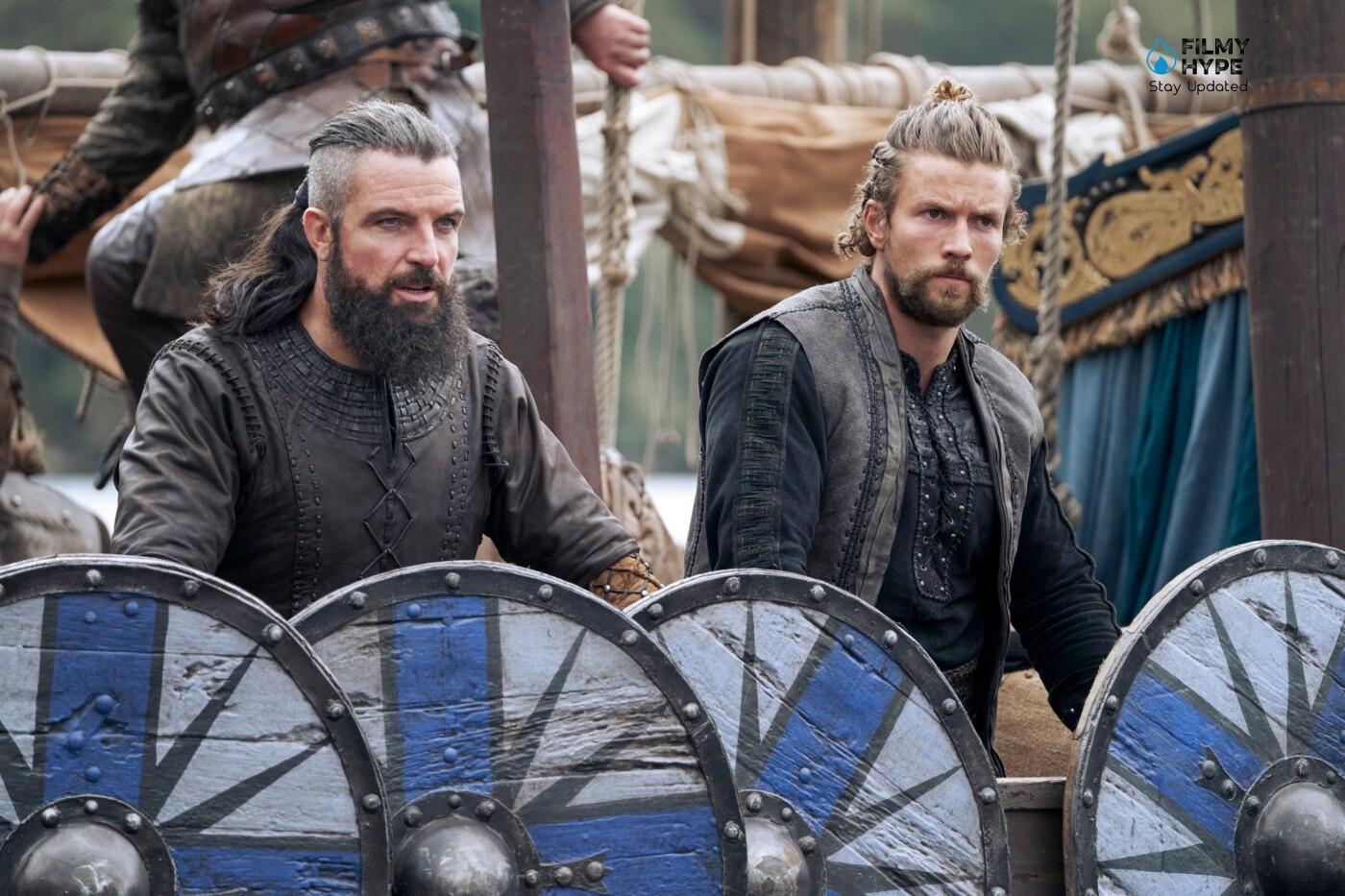
Vikings: Valhalla Review: The Story Plot
Set a century after the events of Ragnar Lothbrok in Vikings, this spin-off tells the adventures of a new generation of legendary heroes, including Leif Erikson, Freydís Eiríksdóttir, Harald Hardrada and Canute the Great, adventures that, however, mark the end of the Viking era and introduce clashes and takeover of the Kingdom of England.
The protagonist of Vikings: Valhalla will be Leif Eriksson (Sam Corlett), a sailor who grew up on the edge of the known world. Also in the cast is Frida Gustavasson, a strong and determined young woman called Freydis Eriksdotter; Leo Suter as Harald Sigurdsson, a charismatic, ambitious and beautiful Viking nobleman, and Bradley Freegard as King Canute, head of Denmark, and whose ambition shaped the course of the 11th century.
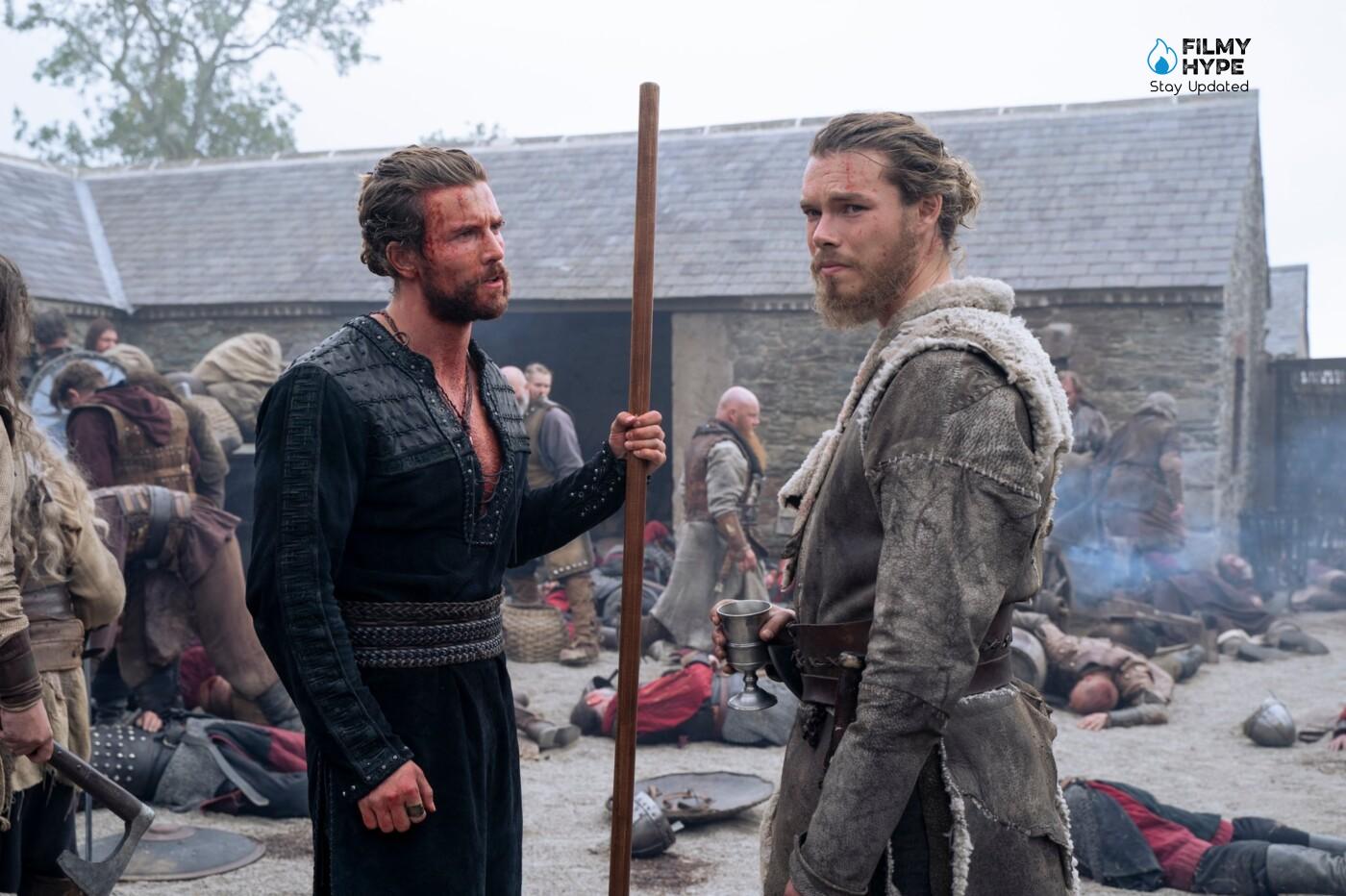
All the Vikings: Valhalla episodes have a dark, realistic tone that best represents the reference period. So, if you especially love the Viking era, the characters linked to that era and the gory scenes this spin-off is the right product for you. The diversity of Valhalla, in this incipit, is very evident, to be found not in the events themselves – let’s face it, who really expected an innovative plot full of scenarios never seen before? – but in their management, since Hirst had a very clear style on how to insert new elements into a narrative fabric. It was a decisive and rapid writing, aimed at highlighting as quickly as possible, often in the most bombastic way possible, the peculiarities of a character or a war, while the spin-off curated by Jeb Stuart has a slower and slower pace. Calm, where situations emerge with much more naturalness and the charisma is glimpsed more in moments of transition than in scenes built ad hoc.
But what truly amazes is the inevitable progressive enlargement of the plot , albeit phlegmatic and constant: it starts with a small personal story of two Greenlandic foreigners who for the first time set foot in Norway, in an extraordinary commercial port like Kattegat, and from here everything unfolds and spreads out. One is almost initiated, to use a somewhat esoteric jargon, to guide Canuto, to the exasperating positions of Olaf (Johannes Haukur Johannesson) regarding the need for a mass conversion to Christianity, to the devious desire for power and not only of Harald (Leo Suter) and how our protagonists end up being trapped in this web of revenge, glory and disturbing ideological clashes.
Vikings: Valhalla Review And Analysis
The first season of the series is divided into eight episodes of about fifty minutes each and although it may make some reference to the characters of the original series, it is not necessary that you have followed it; each episode, as already anticipated before, although it carries the story forward in a linear way , without neglecting parts of the background fundamental to understand the characters, it is full of information and insights both of the period and on the individual adventures and the spiritual and moral paths of each individual leading character.
Although the story tells of the two brothers, the two are soon separated and will create two totally opposite stories. Leif will leave for England in an atmosphere of battles and violence in the midst of devout Christians while the strong and courageous Freydis stays at home and will immerse herself fully in the religion she loves, so the two brothers, however united by the same goal, will create two strands, one stronger and faster and the other slower and with less action.
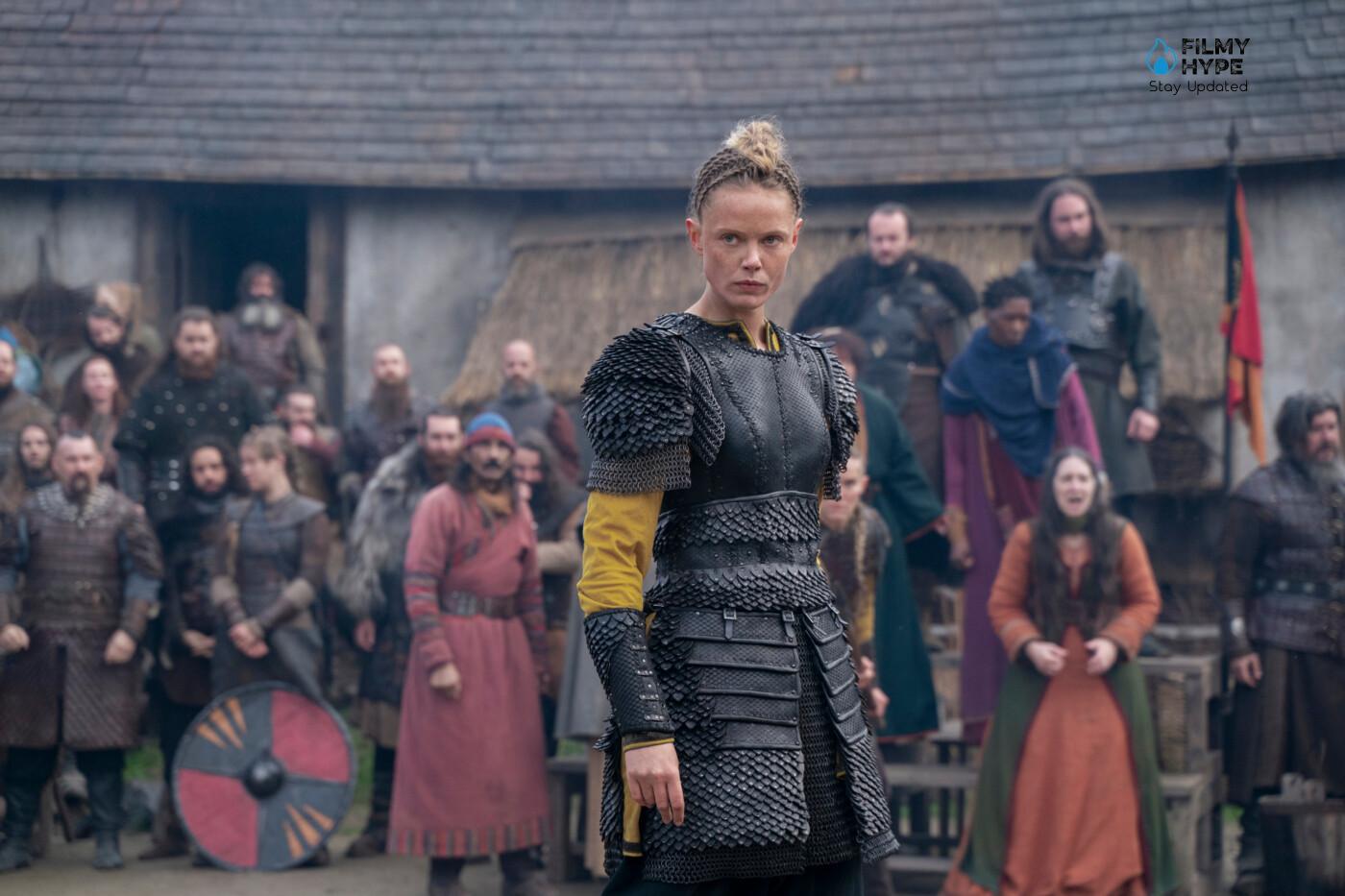
Vikings: Valhalla is a worthy spin off of the original series. We can relive the same atmosphere of battles and glory but, this time, religion is much more present. In fact, many of the Vikings, after their stay in England converted to Christianity and passed on the religion to their children. Only recently returned to their homeland do they clash with the rest of the Viking population who have remained faithful to the pagan gods. One of the differences between the two religions clashes with the Viking culture. Being a people who love incursions and battles, much sustained in the pagan religion, Christianity instead excludes them and this would collide with the very nature of this people. Unfortunately, however, this topic is not explored much in the first season.
It is obvious that the series focuses a lot this time on the religious clash. This is because it shows what each character thinks about different religions and how she acts as a consequence of this, often and willingly acting in complete contrast to what she professes. The part I really like about Vikings: Valhalla is the large number of interesting and noteworthy secondary characters. Each has a different trait and different ideas, opinions and a story that will be interesting to follow. Even if the first season does not tell a too exciting story (probably because it has to follow a story already written), the conflicts open and close during an episode but a large number of characters are introduced who, probably, will have a development in the over the next few seasons and it will be interesting to see where they lead.
The action scenes and hand-to-hand clashes are made up of really well-made choreographies, so much so that they look like real bloody and bloody real fights: therefore the rendering of the raw action scenes and Viking-style power takes is excellent. The dialogues and writing in general are also good, between courtly languages and battle cries, you can actually perceive the mood of the time, all supported by a pressing rhythm of the series that pushes the viewer to want to know more and to go forward with the episodes and from soundtracks that manage to underline the importance of the salient scenes of the series.
Vikings: Valhalla, however, as well as for its good technical realization, stands out for the issues addressed, issues that, although told specifically for the time in which the events take place, are still current. Overall, therefore, we are faced with a TV series that between dark and violent scenarios , compelling moments and themes such as the importance of the family, power and moral integrity , religion , one’s own beliefs and bonds of interest. , manages to communicate well with the viewer, making him passionate episode after episode.
Fans of Norse mythology will know that the title Vikings: Valhalla obviously refers to the place where warriors go after they die in battle, Valhalla. But probably the title was also chosen because it represents the essence of one of the important themes of the series: faith. Whether it is in the Christian God or in the Norse Gods, one of the fundamental aspects of the series is the loyalty to one’s religious beliefs, to the point of reaching sacrifices and battles.
The real light of the second part of the season is represented by Freydis’ personal odyssey, a journey to the sacred places of the cult of Odin that is intertwined with the religious fanaticism of the Christian Vikings, capable of reaching unsustainable peaks of unjustified violence. Already it is an intriguing division, as if Leif and Freydis had taken turns to stay in the limelight – an exchange that we would have preferred in a more natural and less clear-cut and truncated form, but it has its own sense at the level of narrative. . And although the annoying sensation of much more traditional tracks still remains, primarily due to the evocative staging of some religious rites, compared to the dazzling invasion, it is a pleasant and enormously animated storyline by the presence of an extraordinary and delusional villain.
In short, as a first chapter of a long book Vikings: Valhalla discreetly carries out its duty, with numerous and perhaps too many ups and downs, but lays – in the abused Netflix scheme – some very respectable bases. Finally, what makes us turn up our noses a little is the low budget sensation that comes out in some moments and clashes: apart from the two great decisive and directing battles, the rest seemed subdued, with questionable shots and editing.
Vikings: Valhalla is an interesting restart, which finds its dimension both by remaining in close continuity with the parent series and by seeking – and largely succeeding – to explore new paths, or at least new ways of telling the same basic material. The first part of the season, in fact, is a little storytelling jewel that starts small – the arrival of two bizarre Greenlanders in Kattegat – and slowly develops always with the right timing, presenting new situations and new characters with impeccable timing. As soon as there is the feeling of settling into a certain situation, here is Valhallait punctually advances and introduces other elements, in a truly developed and excellently managed growing narrative. It is the second part of the season that breaks the game and goes on a bit too traditional tracks. If at least the story of Freydis, while not making a miracle scream, has a precise narrative and thematic role and is animated by the presence of an extraordinary villain, the English situations, among continuous political games always equal to themselves despite the upheavals, represent tired and repetitive moments – an aftertaste further accentuated by the lack of the real stars of the series. In short, Valhalla , albeit with too many ups and downs, has done her duty in this first chapter.
Vikings: Valhalla: The Last Words
Vikings: Valhalla is a worthy spin off of the original series. It focuses much more on the religious factor as now they are divided between Christians and pagans while, the historical part is rather slowed down as it must follow something already written. Very nice the story line that follows the two brothers and divides, in the course of the two stories many interesting characters are introduced, each of which has a different story that is presented and will be nice to follow in the future.




